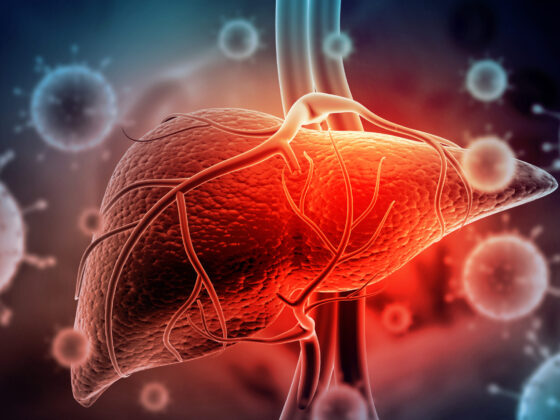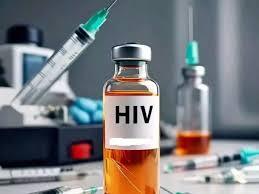By – Dr Mukund A Prabhu, Associate Professor, Department of Cardiology, Kasturba Medical College & Hospital, MAHE, Manipal
Heart health is a critical aspect of overall well-being that is often associated with older individuals. However, the importance of heart health in the young cannot be overstated. Young adults often neglect this vital aspect of their health due to a perception that heart issues are exclusive to the elderly. In reality, heart health in the young is a crucial foundation for a long, healthy life. This article explores the significance of heart health in young individuals, the factors influencing it, and the preventive measures and lifestyle choices that can promote cardiovascular wellness from an early age.
The Significance of Heart Health in the Young
The young population is often perceived as robust and resilient, with the assumption that heart health concerns are far from their minds. However, this misconception can lead to severe consequences. Heart health in the young is vital for several reasons:
• Longevity: Developing and maintaining a healthy heart from a young age significantly contributes to a longer and more fulfilling life. Heart diseases often manifest later in life but have their roots in young adulthood.
• Quality of Life: A healthy heart enables young individuals to lead an active and energetic life. It supports physical activities, mental well-being, and overall quality of life.
• Economic Burden: Cardiovascular diseases are a significant economic burden on society. Preventing heart issues in young adults can reduce healthcare costs and improve productivity.
• Risk Factors Accumulation: Many of the risk factors for heart disease, such as poor diet, lack of exercise, smoking, and excessive alcohol consumption, are established during youth. Tackling these factors early can prevent future problems.
• Genetics: Some individuals have a genetic predisposition to heart disease. Understanding family history and addressing risk factors in youth can help mitigate these genetic risks.
Factors Influencing Heart Health in the Young
Several factors influence heart health in young individuals, and understanding them is essential for promoting cardiovascular wellness. These include, diet, physical activity, smoking, stress levels, alcohol consumption and genetic factors, to name the important ones. Poor dietary choices, including excessive consumption of processed foods, sugary drinks, and high-fat meals, can lead to obesity, high blood pressure, and elevated cholesterol levels. Sedentary lifestyles are becoming increasingly common among young people. Lack of physical activity contributes to obesity, weakens the heart muscle, and increases the risk of heart disease. Smoking is a major risk factor for heart disease. Young adults who smoke are at a significantly higher risk of developing heart issues later in life. Even [passive smoking takes a toll on the health, and smokers should keep in mind about the damage that they are causing to others, as well as the environment. Similarly, excessive alcohol consumption can raise blood pressure, contribute to obesity, and weaken the heart muscle. High levels of stress, especially when chronic, can negatively impact heart health. Stress management strategies are crucial for young adults especially in a country like ours where there is little importance given to personal time amidst busy work schedule. The lack of work-life balance is a grave factor which needs to be seriously considered when hoping for a better health. Finally, Family history plays a role in heart health and is a strong predictive factor for heart attacks. Knowing one’s genetic risk factors can guide preventive measures.
Preventive Measures and Lifestyle Choices
To promote heart health in young individuals, it is crucial to adopt preventive measures and make lifestyle choices that prioritize cardiovascular wellness. A Healthy diet rich in fruits, vegetables, whole grains, lean proteins, and healthy fats can help maintain a healthy weight, reduce cholesterol levels, and control blood pressure.
Regular Exercise: Engaging in regular physical activity, such as aerobic exercises, strength training, and flexibility exercises, strengthens the heart and reduces the risk of heart disease.
Quitting smoking and limiting alcohol intake are crucial steps toward heart health, and are surprisingly simple to grasp, yet difficult to achieve. Motivational groups where one can get help to continue refraining from these habits might perhaps improve the success rate of implementing smoking cessation and deaddiction programs. Learning stress management techniques, such as meditation, mindfulness, or yoga, can reduce the negative impact of stress on the heart. Selected , high risk persons should have regular check-ups with their healthcare providers to monitor blood pressure, cholesterol levels, and other cardiovascular risk factors. Promoting awareness of heart health in schools and communities can empower young people to make informed choices. Creating a supportive environment that encourages healthy habits can have a lasting impact on heart health.
Dietary measures towards cholesterol reduction and betterment of heart health
Certainly, a heart-healthy diet for cholesterol control is essential for maintaining cardiovascular wellness. High cholesterol levels, especially high levels of LDL (low-density lipoprotein) cholesterol, are a significant risk factor for heart disease. The following dietary guidelines are a rough guide in planning the diet, though a comprehensive discussion is beyond the scope of this article.
Choose Healthy Fats:
Opt for unsaturated fats, such as monounsaturated and polyunsaturated fats, found in foods like olive oil, canola oil, avocados, nuts, and seeds.Limit saturated fats found in red meat, full-fat dairy products, and some tropical oils like palm oil.Avoid trans fats, often found in many processed and fried foods. Check food labels for “partially hydrogenated oils 9Vanaspati)” to identify trans fats.
DASH Diet Might be Effective In Preventing Heart Failure Led By Hypertension | ALSO READ
Omega-3 fatty acids found in fatty fish (e.g., salmon, mackerel, trout), flaxseeds, chia seeds, and walnuts can help lower LDL cholesterol.
Increase Soluble Fiber:
Foods high in soluble fiber can help reduce LDL cholesterol levels. Good sources include oats, barley, beans, lentils, fruits (especially apples, citrus fruits, and berries), and vegetables (particularly okra and eggplant).Opt for whole grains like whole wheat, brown rice, quinoa, and oats instead of refined grains. Whole grains contain more fiber and nutrients that support heart health.
Eat Lean Proteins:
Choose lean protein sources such as skinless poultry, fish, tofu, legumes, and beans instead of fatty cuts of meat or processed meats.
Limit Cholesterol Intake:
Reduce dietary cholesterol intake by limiting egg yolks and organ meats. However, for most people, the cholesterol in food has a smaller impact on blood cholesterol levels compared to saturated and trans fats.
Other useful measures:
Be mindful of portion sizes to prevent overeating, which can contribute to weight gain and higher cholesterol levels.Incorporate herbs and spices like garlic, turmeric, ginger, and cinnamon into your cooking. Some of these have been shown to have potential cholesterol-lowering properties.
High sugar intake can lead to weight gain and increased triglyceride levels, which can negatively affect cholesterol. Avoid sugary drinks and limit your consumption of sweets and processed snacks.Drinking plenty of water is essential for overall health. It can help maintain proper bodily functions, including metabolism.Creating a meal plan and preparing your own meals at home allows you to have better control over the ingredients and cooking methods used.
Remember that dietary changes may take time to yield noticeable results in cholesterol levels. It’s also essential to combine a heart-healthy diet with other lifestyle changes, such as regular exercise and not smoking, for comprehensive cardiovascular health. If you have high cholesterol or specific dietary concerns, it’s advisable to consult with a healthcare provider or registered dietitian who can create a personalized plan tailored to your needs. Additionally, medication may be necessary for some individuals with very high cholesterol levels, as prescribed by a healthcare professional.
Exercising for the benefit of heart health
Exercise plays a vital role in promoting heart health and reducing the risk of cardiovascular diseases. Regular physical activity can help improve cardiovascular fitness, lower blood pressure, reduce cholesterol levels, manage weight, and enhance overall well-being. Here’s how to exercise for heart health.Before starting any exercise program, especially if you have pre-existing medical conditions or are older and less active, it’s essential to consult with your healthcare provider. They can provide guidance on safe exercise routines tailored to your specific needs and health status.
• Choose Aerobic Activities
Aerobic exercises, also known as cardiovascular exercises, are excellent for heart health. These activities increase your heart rate and breathing, improving the efficiency of your heart and lungs. Examples include brisk walking, jogging, cycling, swimming, dancing, and aerobic classes.
• Frequency and Duration
Aim for at least 150 minutes of moderate-intensity aerobic exercise per week or 75 minutes of vigorous-intensity exercise. You can also break this down into shorter sessions, such as 30 minutes a day, five days a week. Alternatively, engage in a combination of moderate and vigorous activities.
• Warm-Up and Cool Down
Always start your exercise session with a brief warm-up to prepare your muscles and heart for more vigorous activity. Cool down with a few minutes of light activity and stretching to gradually lower your heart rate and prevent injury.
• Flexibility and Stretching:
Regular stretching exercises can improve flexibility, reduce the risk of muscle imbalances, and enhance overall mobility. Include stretching in your routine, especially after aerobic and strength workouts.
Other aspects of exercise such as strength training and High-intensity interval training are best initiated under supervision.
• Listen to Your Body
Pay attention to how you feel during exercise. If you experience chest pain, dizziness, severe shortness of breath, or any other concerning symptoms, stop exercising immediately and seek medical attention.
If you’re new to exercise or returning after a long break, start gradually and progress slowly. Over time, you can increase the intensity, duration, and frequency of your workouts. The most significant benefits to heart health come from consistent, long-term exercise. Make physical activity a regular part of your routine.To keep exercise interesting and prevent boredom, vary your activities. You can mix cardio workouts with strength training, yoga, or other activities you enjoy. Track your exercise routines and progress. This can be motivating and help you adjust your workouts as needed. Finally, remember that everyone’s fitness level and goals are different. What’s most important is finding physical activities you enjoy and can sustain over the long term. Incorporating exercise into your daily life is a key step in improving and maintaining heart health.
Conclusion
Heart health in the young is a fundamental aspect of overall well-being that should not be overlooked. Neglecting cardiovascular wellness during youth can lead to severe consequences later in life. It is imperative for young adults to prioritize heart health by making informed lifestyle choices, such as adopting a healthy diet, engaging in regular physical activity, avoiding smoking and excessive alcohol, managing stress, and being aware of genetic risk factors. By nurturing heart health from a young age, individuals can pave the way for a longer, healthier, and more fulfilling life.
Prioritize your heart health—it’s the key to a longer, healthier life. Make smart choices with your diet, stay active, manage stress, and avoid smoking. Your heart deserves the best care. Start today!











